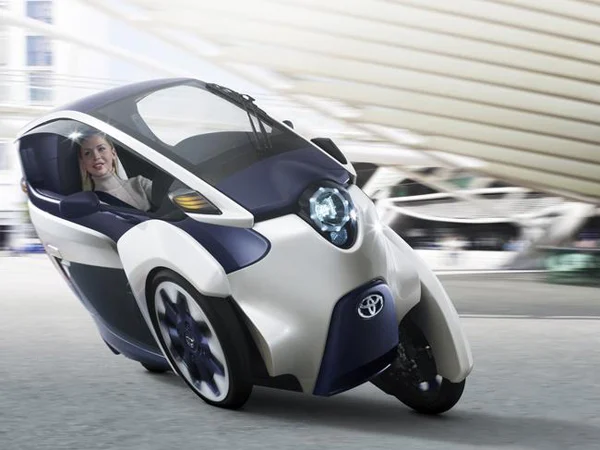Toyota may be singing the praises of hybrids around the world, but it is also tinkering with electric cars as a future low carbon get around town and beyond option. It’s been testing out a concept urban transportation system in its area of Japan called Ha:mo, and now it plans to greatly expand this trial in multiple ways.
Ha:mo, according to Toyota, is an urban transport system
designed to provide transport that is amenable to users, cities and society as a whole by optimally combining personal mobility vehicles such as automobiles with public transportation. The system comprises “Ha:mo Ride”, a compact electric vehicle sharing service that meets the need for short-distance urban transport, and the provision of multi-modal routing information on optimal means of transportation taking into consideration both total carbon dioxide emissions and convenience according to current road conditions and public transportation operating status.
The system, when it debuted last year, was relatively small in scope with regards to the number of short haul electric vehicles being used, among other nuances. What’s being brought online now is the addition of 45 additional Toyota COMSelectric vehicles for car sharing, joining 10 already in service. This will jump up to 100 by mid-month, and vehicle access and operation will also be made keyless.
In addition to the new COMS electric cars, Toyota is adding 45 Yamaha PAS power-assist electric bikes, jumping this total even higher to 100 by mid-month. The Japanese automaker will as well bring into the mix its i-Road “personal mobility concept car as a one-seater electric vehicle and introduce it for use in the Ha:mo system in around early 2014. With an ultra-compact package offering the convenience of a motorcycle and a new type of driving pleasure, the Toyota i-Road is expected to fulfill a wide range of user needs.”

image via Toyota
This new i-Road electric vehicle idea was first shown off at the Geneva Motor Show earlier this year. It is powered by a lithium-ion battery that drives a pair of 2 kW electric motors mounted within the front wheels. Its range is around 30 miles, and it sports an “active lean” feature which allows for automatic leaning as one corners. Though it isn’t clear how useful this will be in the Toyota City deployment, it could be particularly helpful in a planned urban EV car sharing project in the city of Grenoble, France that will kick off at the end of next year.
There’s a lot more going on with Ha:mo expansion beyond just new vehicles. The number of vehicle rental stations, as well as the number of members, will both increase dramatically. A user based fee system is also being brought into play, being supplemented later by a supply-and-demand fee system that aims to improve the distribution of vehicles at certain stations. And, in a nod to the public transportation interface aspect, the system will be linked to a Hitachi-developed integrated bus operations management program to enable riders to easily access a list of the schedules and routes of multiple bus companies.






